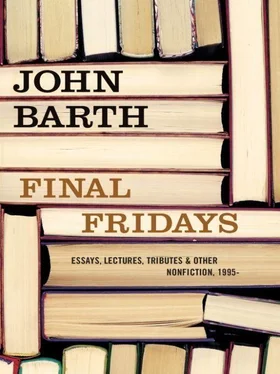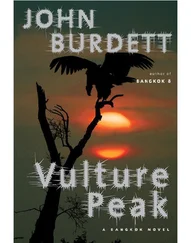Other settlers before Lord Baltimore’s, however, had already made a fair start on that. A quarter-century before Arke and Dove raised the Virginia Capes, Captain John Smith’s Anglican crowd had reconnoitered the upper Bay from their Jamestown base. The official reason for that cruise from the James River all the way up to the Susquehannah and back — two cruises, actually, in the summer of 1608—was exploration: the Northwest Passage and all that. But the skipper famously notes that the gentlemen who comprised his crew were a bunch of layabouts and troublemakers; he wanted to get them out of town and keep them busy. Cruising the Bay is good for that; my wife and I have occasionally taken houseguests out on the water for somewhat similar reasons. “A surpassing clumsie daye of Sayling,” Captain John exasperates to his log-book at one point; we too, with novice crew-members aboard, have known a few of those. By 1634 the trees of tidewater Virginia were fast being cleared for agriculture, its aboriginals were more or less in hand, and its soil was being leached of nutrients by commercial tobacco-farming and permitted to silt the pristine creeks and coves. Nothing large-scale yet, but a beginning.
On the other hand, illicit interstate commerce, so to speak, was already a growing enterprise. The forcible takeover of William [‘Black Bill’] Claiborne’s prosperous but not quite legitimate Kent Island trading post would be Maryland’s military-naval debut; it accounts for the careful wording of a prominent historical marker on Route 50 just across the Chesapeake Bay Bridge from Annapolis: The first English settlement within Maryland happens to have been a settlement of Virginians, not of Marylanders. Their expulsion was the overture to a veritable floating opera of waterborne friction between the Old Line State and the Old Dominion that ongoes yet; as recently as 1984 [the year I wrote this paragraph] the Virginia crabbers were complaining that the Maryland crabbers were checking into motels on the lower Eastern Shore, crabbing right around the clock in Virginia waters, cutting loose the Virginians’ pots, and “hot-sheeting” the motels into the bargain by paying one tab and sleeping in shifts….
My point is that the seeds of such prickly nettles had already sprouted when the first Marylanders arrived to cultivate their garden. Even the African slave business was fifteen years old already; by 1634 it was a going concern, and by century’s end a growth industry, like computer software nowadays. In short, what Lord Baltimore’s “boat people” accomplished — that band of more or less intrepid, more or less Roman Catholic adventurers, self-exiles, and politico-religious refugees from a now-and-then anti-papist homeland — was not the discovery of Maryland, but its invention, followed by its appropriation (expropriation where necessary), and as quickly as possible thereafter by its busy “development.” That is to say, by the exploitation of its abundant and scarcely scratched natural resources for their own and their patron’s benefit and — the expedition’s chaplains being Jesuits—“for the greater glory of God.”
Amen, and end of quotation. My point here is that in the extent of that “development,” by the century’s turn the Virginians remained substantially ahead of the Marylanders, for good and for ill. I venture to say that while the serial misadventures of Ebenezer Cooke’s original sot-weed factor (of whom more presently) could perhaps have befallen him in colonial Virginia, their comic plausibility is strengthened by their happening in colonial Maryland.
WHAT WERE THOSE misadventures, and what do they tell us about life back then and there? Knowledgeable as you-all are, I’m not going to assume that every single one of you has read and retained in memory the 600-plus pages of my Sot-Weed Factor novel or even the couple-dozen pages of the original Eben Cooke’s satiric poem of 1708—which, by the way, I warmly recommend. Let me briefly summarize the situation of both, and then I’ll get on with our subject.
No need to explain here the terms sot-weed and factor —although some readers are surprised to learn that those terms don’t refer to an element in a situation, like the “fudge factor” in statistical analysis or the notorious “sleaze factor” in some national political conventions. Wholesale tobacco agents who traded English manufactured goods for hogsheads of tobacco from the plantations of tidewater Virginia and Maryland were a feature of everyday life here in the colonial period, and they supplied both the title and the luckless hero of one of the very first American literary satires: Ebenezer Cooke’s fierce and funny antidote to the promotional puffs that characterized most other contemporary writing about life in colonial Tidewaterland: the Edenic landscape, the noble savages and honest tradespeople, the civilized gentry on their elegant and hospitable plantations…. All true enough of colonial Virginia, maybe; but when Cooke’s anonymous first-person narrator, a young Englishman down on his luck, arrives in this fabled New World to try his hand at sot-weed factoring, he finds tidewater Maryland to be an uncouth, pestilential place where the natives stink of bear grease; 3the colonials are drunken, brawling, illiterate sharpsters whose hospitality is not to be trusted; the women are bawds and fishwives; and the courts of law are prevailingly corrupt. Among other misfortunes, the poor greenhorn is robbed of his clothes, treed by hound dogs, plagued by mosquitoes and by the “seasoning” fever so often fatal to new arrivals, and ultimately cheated out of his stock in trade. A ruined man, he takes ship homeward from what he calls “that Shore where no good Sense is found, / But Conversation’s lost, and Manners drown’d,” and the poem closes with his malediction:
May Wrath divine. . lay these Regions wast
Where no Man’s faithful, nor a Woman chast!
So much for everyday life in early-colonial Maryland. Cooke’s poem is of course a satire, programmatically hyperbolical for comic effect like most satires; and it is to be noted that unlike its antihero, the poem’s author (about whom not a great deal is known) evidently chose to live out his life over here instead of back in London, where the first edition of the poem was published. 4But like any good satire, Cooke’s “Sot-Weed Factor” overstates for corrective purposes what our sense of reality tells us must have been overstatements in the other direction by the existing literature, which has the air of a sales prospectus. In any case, having been born and raised on the Choptank River just a few miles upstream from Cooks Point (named for Ebenezer’s father, who established a seat there in the 1660s), I knew the name and the geography long before I knew anything of its history. During my student days at Johns Hopkins I came across the Sot-Weed Factor poem in Roy Harvey Pearce’s 1950 anthology of colonial American writing, and later in my literary apprenticeship it occurred to me to imagine a novel premised on the notion that Cooke’s poem was more or less autobiographical: the misadventures of a programmatically innocent aspiring writer , precociously commissioned by Lord Baltimore to go sing the praises of life in early colonial Maryland—“the Graciousness of Maryland’s Inhabitants, Their Good Breeding and Excellent Dwelling-places, the Majesty of Her Laws, the Comfort of Her Inns & Ordinaries, &t &t”—in a word, a Marylandiad . In my version, Cooke’s misdirections and innocent pretensions cost him not only his goods but the family estate. While then regaining that lost estate at the sacrifice of his ever more technical innocence, he also learns the hard way some facts of literary life; under all his rhetorical posturing and attitudinizing he finds an authentic voice and discovers his true subject matter and most congenial form. In short, by writing not the fulsome Marylandiad commissioned by his patron but the satirical Sot-Weed Factor instead, he manages to become the writer that he had innocently presumed himself to be.
Читать дальше












